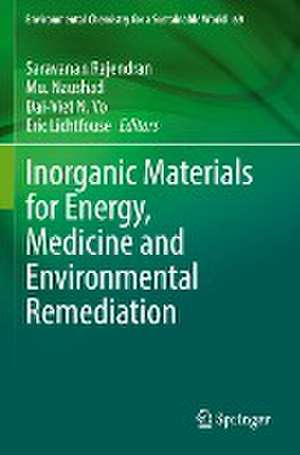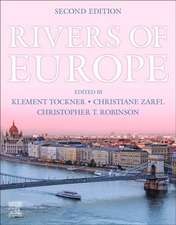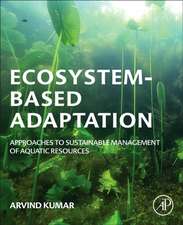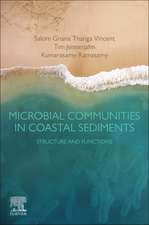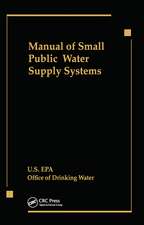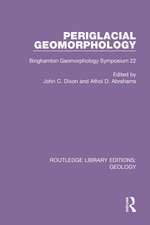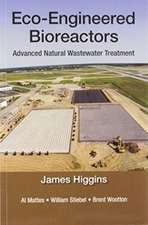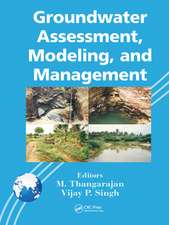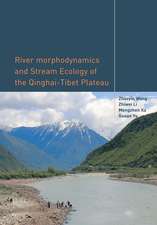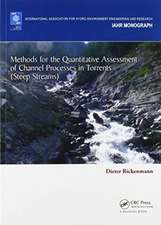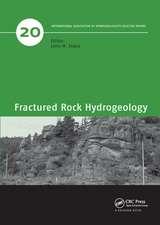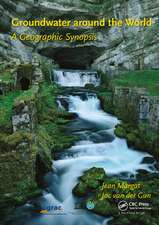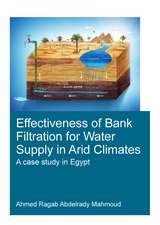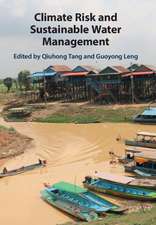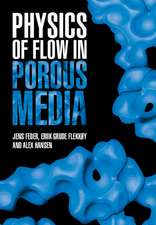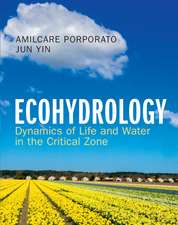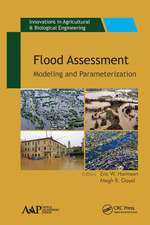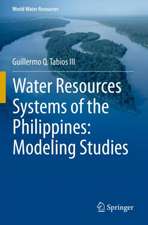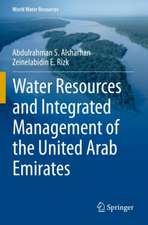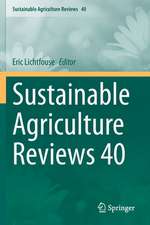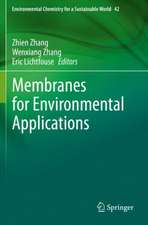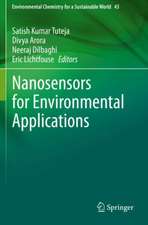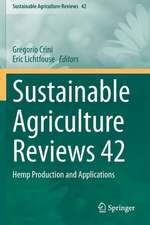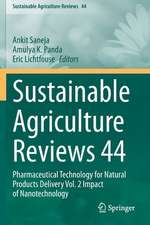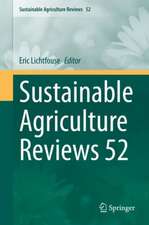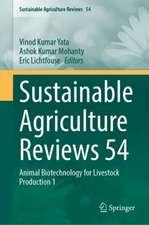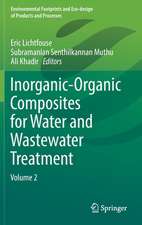Inorganic Materials for Energy, Medicine and Environmental Remediation: Environmental Chemistry for a Sustainable World, cartea 69
Editat de Saravanan Rajendran, Mu. Naushad, Dai-Viet N. Vo, Eric Lichtfouseen Limba Engleză Paperback – 27 noi 2022
| Toate formatele și edițiile | Preț | Express |
|---|---|---|
| Paperback (1) | 781.84 lei 38-44 zile | |
| Springer International Publishing – 27 noi 2022 | 781.84 lei 38-44 zile | |
| Hardback (1) | 950.52 lei 3-5 săpt. | |
| Springer International Publishing – 26 noi 2021 | 950.52 lei 3-5 săpt. |
Din seria Environmental Chemistry for a Sustainable World
- 18%
 Preț: 1118.45 lei
Preț: 1118.45 lei - 15%
 Preț: 645.79 lei
Preț: 645.79 lei - 15%
 Preț: 653.14 lei
Preț: 653.14 lei - 15%
 Preț: 648.24 lei
Preț: 648.24 lei - 15%
 Preț: 643.34 lei
Preț: 643.34 lei - 15%
 Preț: 651.51 lei
Preț: 651.51 lei - 15%
 Preț: 646.62 lei
Preț: 646.62 lei - 18%
 Preț: 956.81 lei
Preț: 956.81 lei - 18%
 Preț: 959.98 lei
Preț: 959.98 lei - 15%
 Preț: 646.62 lei
Preț: 646.62 lei - 18%
 Preț: 1389.30 lei
Preț: 1389.30 lei - 18%
 Preț: 1229.10 lei
Preț: 1229.10 lei - 18%
 Preț: 1001.81 lei
Preț: 1001.81 lei - 18%
 Preț: 1118.62 lei
Preț: 1118.62 lei - 18%
 Preț: 899.21 lei
Preț: 899.21 lei - 18%
 Preț: 1120.18 lei
Preț: 1120.18 lei - 18%
 Preț: 896.08 lei
Preț: 896.08 lei - 18%
 Preț: 788.72 lei
Preț: 788.72 lei - 18%
 Preț: 1009.70 lei
Preț: 1009.70 lei - 15%
 Preț: 650.86 lei
Preț: 650.86 lei - 15%
 Preț: 646.62 lei
Preț: 646.62 lei - 18%
 Preț: 1017.62 lei
Preț: 1017.62 lei - 18%
 Preț: 1118.62 lei
Preț: 1118.62 lei - 15%
 Preț: 644.95 lei
Preț: 644.95 lei - 5%
 Preț: 915.58 lei
Preț: 915.58 lei - 24%
 Preț: 751.40 lei
Preț: 751.40 lei - 18%
 Preț: 1008.12 lei
Preț: 1008.12 lei - 18%
 Preț: 1113.89 lei
Preț: 1113.89 lei - 18%
 Preț: 950.52 lei
Preț: 950.52 lei - 18%
 Preț: 959.98 lei
Preț: 959.98 lei - 15%
 Preț: 648.42 lei
Preț: 648.42 lei - 18%
 Preț: 950.96 lei
Preț: 950.96 lei - 23%
 Preț: 852.88 lei
Preț: 852.88 lei - 18%
 Preț: 959.50 lei
Preț: 959.50 lei - 20%
 Preț: 647.13 lei
Preț: 647.13 lei - 24%
 Preț: 744.58 lei
Preț: 744.58 lei - 18%
 Preț: 1215.22 lei
Preț: 1215.22 lei - 20%
 Preț: 570.17 lei
Preț: 570.17 lei - 24%
 Preț: 824.15 lei
Preț: 824.15 lei - 15%
 Preț: 647.59 lei
Preț: 647.59 lei
Preț: 781.84 lei
Preț vechi: 1028.74 lei
-24% Nou
Puncte Express: 1173
Preț estimativ în valută:
149.62€ • 162.47$ • 125.68£
149.62€ • 162.47$ • 125.68£
Carte tipărită la comandă
Livrare economică 18-24 aprilie
Preluare comenzi: 021 569.72.76
Specificații
ISBN-13: 9783030799014
ISBN-10: 3030799018
Pagini: 258
Ilustrații: XV, 258 p. 1 illus.
Dimensiuni: 155 x 235 mm
Ediția:1st ed. 2022
Editura: Springer International Publishing
Colecția Springer
Seria Environmental Chemistry for a Sustainable World
Locul publicării:Cham, Switzerland
ISBN-10: 3030799018
Pagini: 258
Ilustrații: XV, 258 p. 1 illus.
Dimensiuni: 155 x 235 mm
Ediția:1st ed. 2022
Editura: Springer International Publishing
Colecția Springer
Seria Environmental Chemistry for a Sustainable World
Locul publicării:Cham, Switzerland
Cuprins
Chapter 1 Localized surface plasmon resonance in colloidal copper sulphide (Cu2-xS, x=0≤x^nts in wastewater.- Chapter 9 Removal of persistent organic pollutants using redox active metal oxide nanocatalysts via advanced oxidation process.- Chapter 10 Metal-based particles as a catalyst for Proton exchange membrane fuel cells.
Notă biografică
Dr. Saravanan Rajendran has received his Ph.D. in Physics-Material Science in 2013 from the Department of Nuclear Physics, University of Madras, Chennai, India. He was awarded the University Research Fellowship (URF) during the year 2009-2011 by the University of Madras. After working as an Assistant Professor in Dhanalakshmi College of Engineering, Chennai, India during the year of 2013-2014, he was awarded SERC and CONICYT-FONDECYT post-doctoral fellowship, University of Chile, Santiago in the year of 2014- 2017. He has worked (2017-2018) in the research group of Professor John Irvine, School of Chemistry, University of St Andrews, the UK as a Postdoctoral Research Fellow within the framework of an EPSRC-Global Challenges Research Fund for the removal of Blue-Green Algae and their toxins. Currently, he is currently working as a Research Scientist, in the Faculty of Engineering, Department of Mechanical Engineering, University of Tarapacá, Arica, Chile. Also, Research Associate in SERC, Santiago, Chile. He is Associate Editor for the International Journal of Environmental Science and Technology (Springer). His research interests focus on the area of nanostructured functional materials, photophysics, surface chemistry and nanocatalysts for renewable energy and waste water purification. He has published several international peer-reviewed Journals, eight book chapters and seven books published by renowned international publishers.
Dr. Mu. Naushad is presently working as a Full Professor in the Department of Chemistry, College of Science, King Saud University (KSU), Riyadh, Kingdom of Saudi Arabia. He is also Distinguished Researcher at Yonsei Frontier Lab, Yonsei University, Seoul, Korea. He obtained his M.Sc. and Ph.D. Degree in Analytical Chemistry from Aligarh Muslim University, Aligarh, India in 2002 and 2007, respectively. He has vast research experience in the multidisciplinary fields of Analytical Chemistry, Materials Chemistry and Environmental Science. He holds several US patents, over 350 publications in the international Journals of repute, twenty-five book chapters and several books published by renowned international publishers. He has >17500 citations with a Google Scholar H-Index of >70. He has been included in the list of Highly Cited Researchers in 2019 & 2020. He has successfully run several research projects funded by the National plan for Science and Technology (NPST) and King Abdulaziz City for Science and Technology (KACST), Kingdom of Saudi Arabia. He is the editor/editorial member of several reputed Journals like Scientific Report (Nature); Journal of Water Process Engineering (Elsevier) and International Journal of Environmental Research & Public Health (MDPI); Polymers (MDPI), Current Pollution Reports (Springer). He is also the associate editor for Environmental Chemistry Letters (Springer) and Desalination & Water Treatment (Taylor & Francis). He has been awarded the Scientist of the year award-2015 from National Environmental Science Academy, Delhi, India and Almarai Award-2017, Saudi Arabia and Best Research Quality award-2019, King Saud University, Saudi Arabia.
Dr. Dai-Viet N. Vo received his Ph.D. degree in Chemical Engineering from The University of New South Wales in Sydney, Australia in 2011. He has worked as a postdoctoral fellow at the University of New South Wales in Sydney and Texas A&M University at Qatar, Doha. He has been appointed as a Senior Lecturer at the Faculty of Chemical & Natural Resources Engineering, Universiti Malaysia Pahang in Kuantan, Malaysia from June 2013 to June 2019. Dr. Vo is currently the Director of the Center of Excellence for Green Energy and Environmental Nanomaterials at Nguyen Tat Thanh University in Ho Chi Minh City, Vietnam. His research areas are the production of green synthetic fuels via Fischer-Tropsch synthesis using biomass-derived syngas from reforming processes. He is also an expert in advanced material synthesis and catalyst characterization. During his early career, he has worked as the principal investigator and co-investigator for 23 different funded research projects related to sustainable and alternative energy. He has published 2 books, 16 book chapters, more than 185 peer-reviewed journals including 38 prestigious review articles and more than 80 conference proceedings.
Dr. Eric Lichtfouse is an environmental chemist working at the University of Aix-Marseille, France. He has invented carbon-13 dating, a method allowing to measure the relative age and turnover of molecular organic compounds occurring in different temporal pools of any complex media. He is teaching scientific writing and communication, and has published the book Scientific Writing for Impact Factors, which includes a new tool – the Micro-Article - to identify the novelty of research results. He is the founder and Chief Editor of scientific journals and series in environmental chemistry and agriculture. He got the Analytical Chemistry Prize by the French Chemical Society, the Grand Prize of the Universities of Nancy and Metz, and a Journal Citation Award by the Essential Indicators.
Dr. Dai-Viet N. Vo received his Ph.D. degree in Chemical Engineering from The University of New South Wales in Sydney, Australia in 2011. He has worked as a postdoctoral fellow at the University of New South Wales in Sydney and Texas A&M University at Qatar, Doha. He has been appointed as a Senior Lecturer at the Faculty of Chemical & Natural Resources Engineering, Universiti Malaysia Pahang in Kuantan, Malaysia from June 2013 to June 2019. Dr. Vo is currently the Director of the Center of Excellence for Green Energy and Environmental Nanomaterials at Nguyen Tat Thanh University in Ho Chi Minh City, Vietnam. His research areas are the production of green synthetic fuels via Fischer-Tropsch synthesis using biomass-derived syngas from reforming processes. He is also an expert in advanced material synthesis and catalyst characterization. During his early career, he has worked as the principal investigator and co-investigator for 23 different funded research projects related to sustainable and alternative energy. He has published 2 books, 16 book chapters, more than 185 peer-reviewed journals including 38 prestigious review articles and more than 80 conference proceedings.
Dr. Eric Lichtfouse is an environmental chemist working at the University of Aix-Marseille, France. He has invented carbon-13 dating, a method allowing to measure the relative age and turnover of molecular organic compounds occurring in different temporal pools of any complex media. He is teaching scientific writing and communication, and has published the book Scientific Writing for Impact Factors, which includes a new tool – the Micro-Article - to identify the novelty of research results. He is the founder and Chief Editor of scientific journals and series in environmental chemistry and agriculture. He got the Analytical Chemistry Prize by the French Chemical Society, the Grand Prize of the Universities of Nancy and Metz, and a Journal Citation Award by the Essential Indicators.
Textul de pe ultima copertă
This book presents concepts, methods and applications of inorganic nanomaterials for energy applications such as fuel cells and batteries, for environmental applications such as water purification, and for medicinal applications such as cancer treatments. The founding father of nanotechnology, Eric Drexler, always communicated a unique vision in exploring new materials and creating advancements in molecular nanotechnology. He emphasized the potential advantages of smaller size, higher efficiency and less needed resources for applications in energy, environment and medicine. A higher surface to volume ratio of inorganic nanomaterials is a key property.
Caracteristici
Detailed synthesis of inorganic nanomaterials by top-down and bottom-up approaches Tuning the properties of nanostructured metal oxide composites Activated microbes for water treatment
